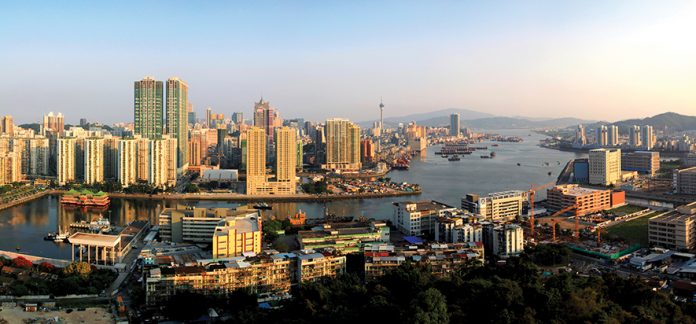IFTM Comments is a partnership between Macau News Agency and Macao Institute for Tourism Studies
By Wilson Hong Cheong Hin
For over a decade, the Macau government has tried to diversify Macau’s economy. The second Five-Year Plan highlighted five sectors under development, namely, medical and health, modern finance, high-technology, exhibition and trade, and culture and sports. However, as the Chief Executive Ho Iat Seng unambiguously stated, despite the tremendous effort, “there are no noteworthy results”. One well-cited cause for the failure in diversification has been the lack of talents in Macau. The question is, why are we so seriously short on talents?

Grooming the talents
The idea of producing talents to fit the needs of society is not a new concept in Macau. A specialised form of education, known as vocational education, dates back to as early as the late 19thcentury. Vocational training schools were initially established by religious bodies and non-profit organisations to offer locals basic skills training for livelihood. Then, in the late 20thcentury, vocational education evolved into offering training of more professional skills such as accounting, translation and mechanics to meet the needs of Macau. With subsequent legislation, such as the 11/91/M, 54/96/M and 9/2006, the current structure of vocational and technical education was basically formed.
Yet, despite the long history of vocational training, our education system does not seem to be able to effectively produce talents necessary for our society. Low-level and mid-level skilled workforce is especially lacking. This is not surprising if we look at the student composition at the secondary education level. As of 2021/22, there were roughly one thousand students studying in vocational schools. This number is only a little over half of the figure a decade ago. Despite the great amount of government spending on vocational schools, parents and students are increasingly finding them unappealing. However, vocational schools are not to be blamed. The problem is more deeply rooted in the general education system of Macau.
The problems
In countries where vocational education is a relative success, such as Germany, schools are geared towards developing students’ understanding of their interests and abilities at an early age. Macau students, on the other hand, may not be aware of their interests and abilities even at the tertiary level. The way of education in Macau is monolithic and does not encourage alternative thinking. Education works more like a production line, where there is a fixed path and students are used to passively receiving the “change” on them. As a result, students are not effectively streamlined into directions that are more suitable for them.

Secondly, scholars have pointed out that the teaching and training provided by vocational schools and higher institutes are overly similar. Higher institutes are supposed to provide more in-depth and sophisticated training, develop independent problem-solving skills and generate authentic solutions to industries. However, most career-oriented programmes offered by local higher institutes can only teach from scratch, as the majority of admitted students may not have the basic technical backgrounds. Consequently, many university graduates are not equipped with the high-level skills that industries expect them to have.
Finally, the lack of internship and working opportunities in some industries discourages students from taking vocational education. This, coupled with the intrinsic education anxiety of average Chinese, makes the choice of vocational schools unlikely. Apart from the tourism and hospitality sectors, cooperation between schools and industries is scant.
The solutions
Technical talents are essential for the success of economic transitions. Low-level and mid-level skilled workers are the pillars of an industry. They are also the source of high-end talents. To better streamline students, primary-level education should shift its focus from pure academic pursuit to developing self-understanding. Based on interests and abilities, students can change to schools that train them in specialised areas. These students will then receive higher-level training in higher institutes. More internship and working opportunities could be sought in the Greater Bay Area, where medical, financial and technological industries are under rapid development. Many of these changes can only happen with greater government intervention and involvement. Fortunately, some of these ideas are already on the agenda, as stated in the latest administrative law 22/2021. With the law being effective in September 2022, we will hopefully witness some “noteworthy results” in the next decade.




















